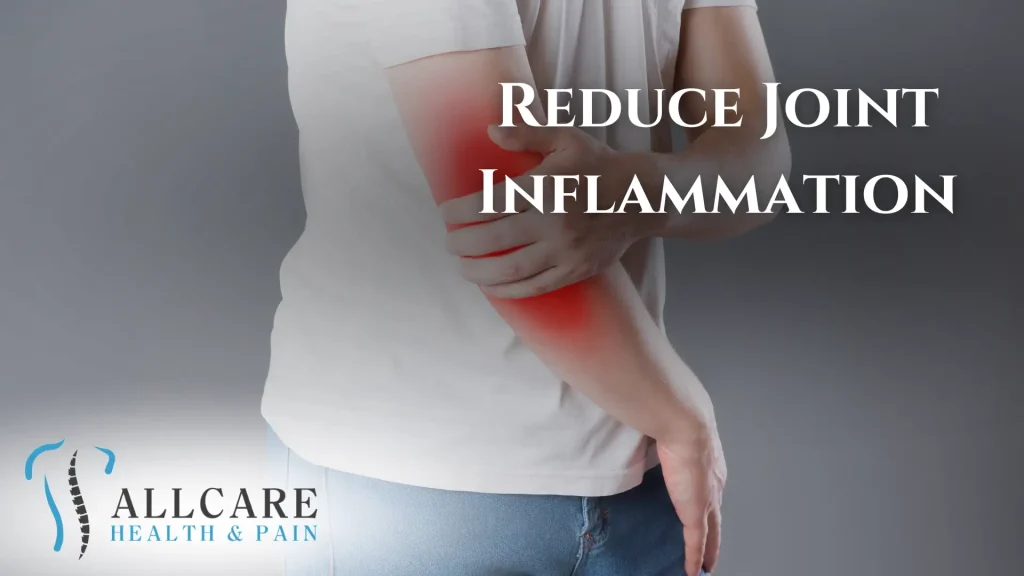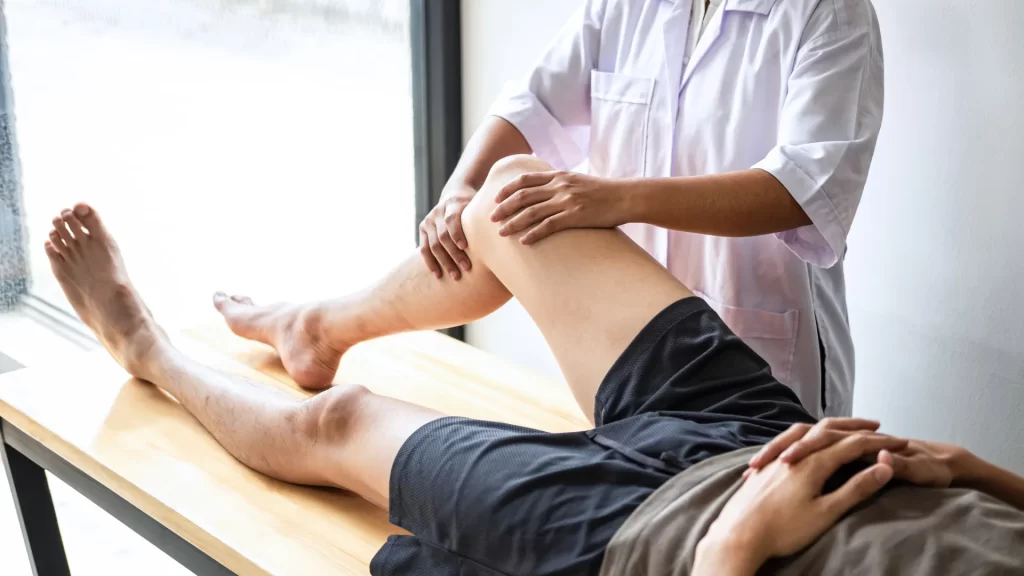
Do you suffer from painful, inflamed joints that make it difficult to go about your daily life? If so, you’re not alone. According to the CDC, 1 in 4 adults — around 15 million people — struggle with joint problems and inflammation. Swollen, aching joints are often a symptom of arthritis, but infections and injuries can also trigger uncomfortable inflammation. If you’re experiencing any of these and want to know how to reduce joint inflammation, contact our Jersey City joint pain experts for further consultation.
What can you take for joint pain? While joint pain treatments often involve medications or injections, many people find relief through natural approaches. In combination with guidance from a qualified pain management physician, these five tips can help you reduce joint inflammation at home:
Maintain a healthy weight
Being overweight exerts additional pressure on your joints, worsening inflammation and pain. Fat tissue also produces inflammatory substances in the body. A healthy BMI based on height takes stress off your joints and reduces overall inflammation.
Aim to lose weight of around 1-2 pounds weekly through a balanced diet and regular physical activity. Focus on whole foods such as fruits, vegetables, lean proteins, and whole grains. Avoid processed foods, refined carbs, and sugary drinks.
Choose low-impact exercises
When your joints are inflamed, you may worry that exercise will make the pain worse. But in fact, regular movement helps reduce joint inflammation and stiffness. The key is selecting low-impact activities that don’t strain your joints excessively.
Some great options include:
- Swimming and water aerobics
- Cycling on a stationary bike
- Elliptical machines
- Walking (aim for 30 min, 5x a week)
- Gentle yoga and stretching routines
Start slowly and listen to your body. Stop if pain increases, and discuss any concerns with your doctor or physical therapist. Over time, consistent exercise will strengthen the muscles around your joints for better support.
Eat an anti-inflammatory diet
The foods you eat directly impact inflammation levels in your body. Certain foods like sugar, trans fats, and refined carbs promote inflammation. However, many delicious foods contain compounds that naturally reduce inflammation and may help ease joint pain.
Fill your plate with anti-inflammatory foods like:
- Fatty fish (salmon, tuna, sardines)
- Berries and cherries
- Leafy greens (spinach, kale, collards)
- Olive oil
- Nuts and seeds
- Whole grains
- Green tea
Some spices also have potent anti-inflammatory properties. Add turmeric, ginger, garlic, cinnamon, and cayenne to your meals. Consider taking a fish oil supplement as well. Omega-3 fats reduce inflammation.
Try hot and cold therapy
Alternating heat and cold is a simple yet effective way to reduce joint pain and inflammation at home. Heat relaxes muscles and increases blood flow to stiff joints, while cold numbs and reduces pain and swelling.
Ways to apply heat:
- Take a warm bath or shower
- Place a heating pad on the joints
- Use an electric blanket
Ways to apply cold:
- Wrap a gel ice pack in a towel
- Submerge joint in cold water
- Massage with a cloth soaked in cold water
Start with cold during active inflammation and switch to heat once the swelling subsides. Apply for 15-20 minutes several times a day. Take breaks in between sessions.
Get regular massages to reduce joint inflammation
 Therapeutic massage can provide significant relief for painful, inflamed joints. Massage increases circulation to flush out inflammatory substances, and it relaxes tense muscles that may be putting pressure on joints.
Therapeutic massage can provide significant relief for painful, inflamed joints. Massage increases circulation to flush out inflammatory substances, and it relaxes tense muscles that may be putting pressure on joints.
Consult with your doctor to see if massage is appropriate for your condition. If so, look for a massage therapist who is experienced in treating joint problems. They may recommend a gentle Swedish massage or a lymphatic drainage technique.
You can also do self-massage at home:
- Use long, gliding strokes over muscles
- Apply moderate pressure to tender areas
- Massage in circular motions around joints
- Focus on knots and tense areas
Consider using a topical oil with anti-inflammatory herbs like arnica or Boswellia. Inhaling lavender or frankincense essential oils during the massage may amplify the relaxing effects.
Get Help for Joint Inflammation Today
While these natural remedies for joint pain can make a big difference, don’t hesitate to seek professional guidance as well. If you’re in the El Paso area, the compassionate team at AllCare Health & Pain is here to help.
Our pain management specialists offer cutting-edge treatments like platelet-rich plasma (PRP) injections and stem cell therapy to accelerate healing in damaged joints. We’ll work with you to develop a personalized plan combining the most advanced medical treatments with natural approaches for comprehensive relief.
By calling us today at 201-386-9800 or reaching out online, you’re taking the first proactive step towards reclaiming control over your health. Whether you’re experiencing different types of arthritis, tendinitis, or any other form of joint inflammation, we’re here to help you navigate your journey to living pain-free.
When you trust our pain management clinic, you’re not just receiving treatment; you’re joining a supportive community focused on your holistic wellness. From innovative therapies to comprehensive rehabilitation programs, we offer a range of services designed to address your specific concerns and empower you to lead an active, fulfilling life.

